Right Care Right Person: Why the Met will no longer respond to health emergencies
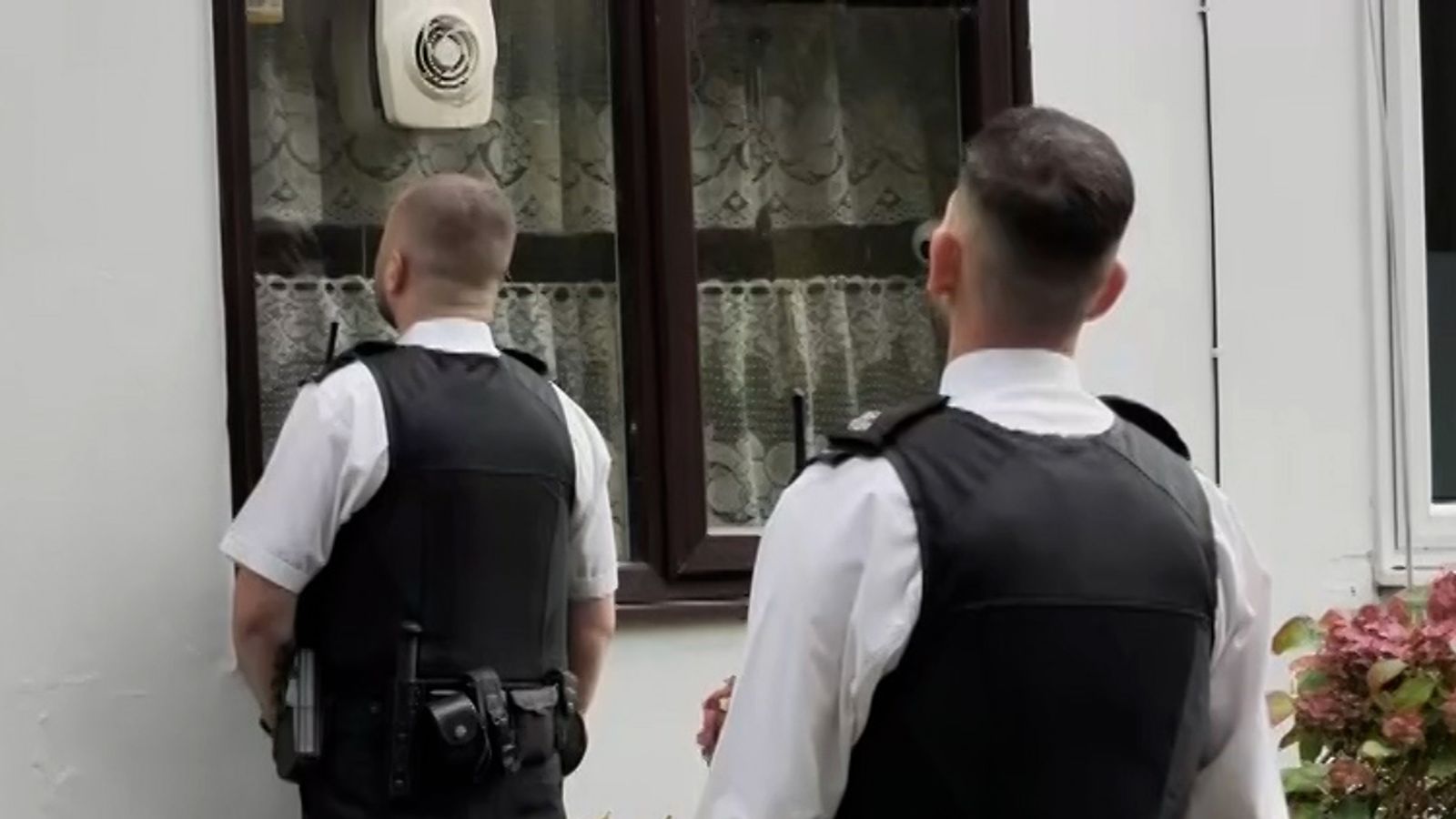
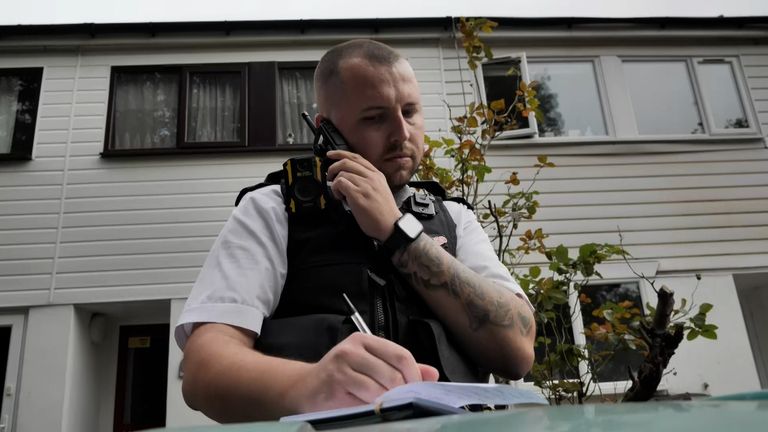
The young police officer had barely started his shift when the first job came through the car radio.
Concerns had been raised about a vulnerable cancer patient suffering from depression who had missed two important hospital appointments, and the police had been asked to perform a welfare check.
PC Liam Cross had very little detail from the call handler. The first address turned out to be wrong.
At the second address, worried neighbours told the police officers they had not seen the man for five weeks.
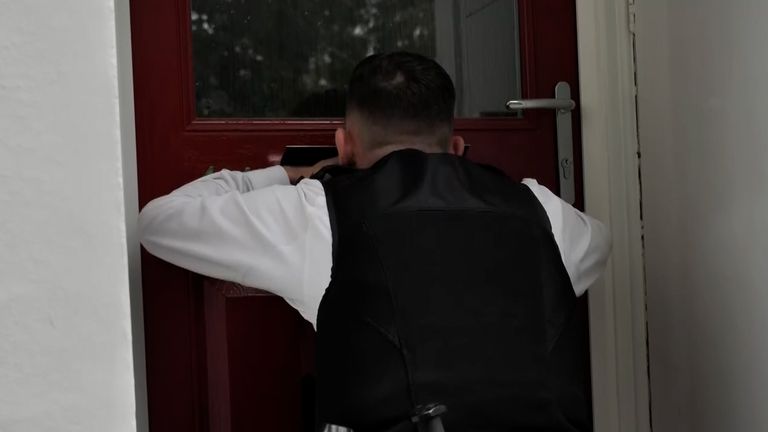
But, they added, he did travel abroad regularly to see his family.
After a call to the patient’s doctor the police decide there is nothing more they can do.
“It’s more than likely that he is away on holiday,” PC Cross explains.
“From just speaking with the doctors there, they’re going to follow up next week, give a further phone call, monitor when he next picks up his medication, because he has got enough at the minute.”
The inconclusive search for the missing patient has taken two hours.
Advertisement
Read more:
Seasonal affective disorder – or SAD – isn’t just ‘winter blues’
Student mental health problems almost tripled in recent years
There will be another ten health emergencies called in to PC Cross and his colleagues in this part of north London before his 12-hour shift is over.
Sometimes they can spend the entire day responding to mental health emergencies.
An entire shift can be spent waiting with a patient in a hospital’s emergency department.
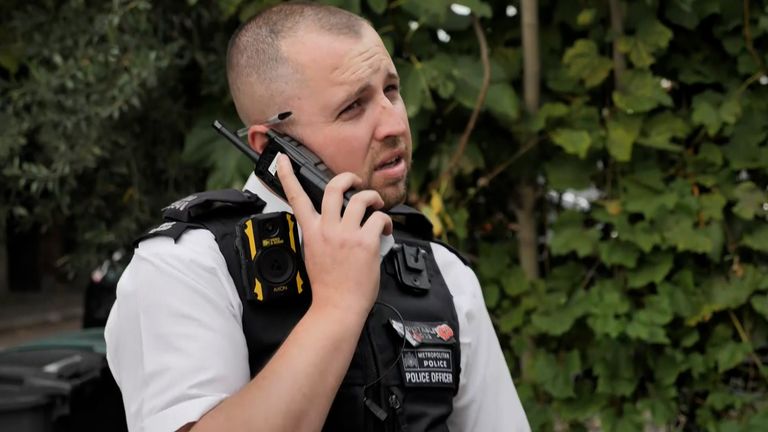
It is one of main reasons why the Metropolitan Police will stop responding to health emergencies from 1 November.
Thousands of police hours will be reclaimed allowing officers to spend more time policing London’s streets. But they insist they will still respond to the most serious emergencies.
Metropolitan Police Assistant Commissioner Matt Twist is the London force’s lead on implementing the Right Care Right Person policy.
He told Sky News: “Where there is a risk to life, where a crime has been committed, or where there’s a risk to breach the peace, the police will always still attend.
“Where it’s purely a health care issue, where we are not the best people to attend, we would want the best people to attend, which are healthcare professionals.”
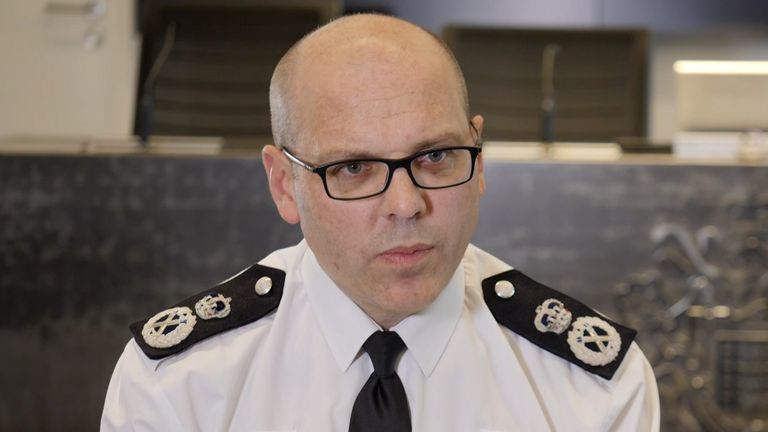
Mental health experts largely agree.
Sending uniformed officers to deal with someone who is experiencing a mental health crisis can often exacerbate the situation.
And police officers are not trained mental health experts.
The NHS denies this change has been forced on them by Met Police Commissioner Sir Mark Rowley, who set today’s deadline.
The health service says it has been working very closely with the Met to ensure a smooth transition. But it also stresses that the change must be phased and gradual.
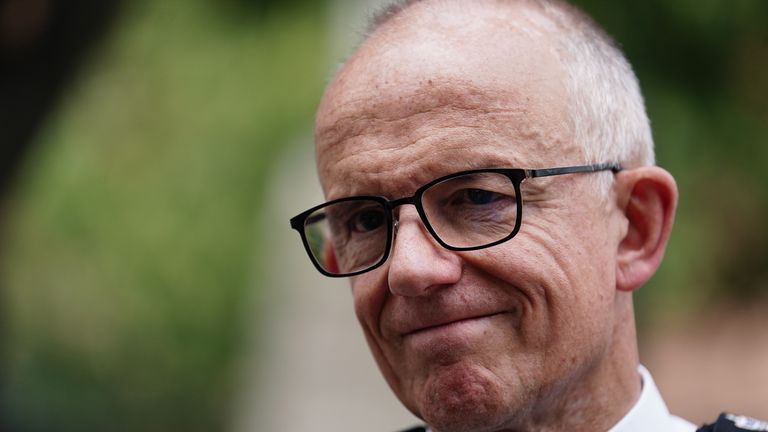
The police will be supported by a new 24/7 advice service for police officers to seek guidance from mental health specialists when they attend an incident before they decide to detain an individual under section 136.
The NHS says its own data shows that some eight in 10 people who are sectioned in London would benefit from community support rather than a hospital admission.
Martin Machray, Director of Performance, NHS London said: “Today, what we see is the introduction of a shared telephone number where we can give advice to the police about what to do if they feel they’ve got a person in front of them with a mental health crisis.
“That doesn’t mean always putting handcuffs on them and taking them to an A&E department.”
Despite the assurances from the police and the NHS, there are real fears that vulnerable people will be left exposed and at risk of harm when the police withdraw their response service.
These concerns come at a time when mental health services are at breaking point and the NHS faces up to the pressure and challenges of another difficult winter.
“There is concern that that isn’t going to be properly funded,” warned Brian Dow, the deputy chief executive of charity Rethink Mental Illness.
He told Sky News: “There are still some people, notably those people who are feeling at risk of suicide and who go missing, that the police won’t be called out to.
“And that is a concern because those are the very most vulnerable people who could fall through the cracks.”